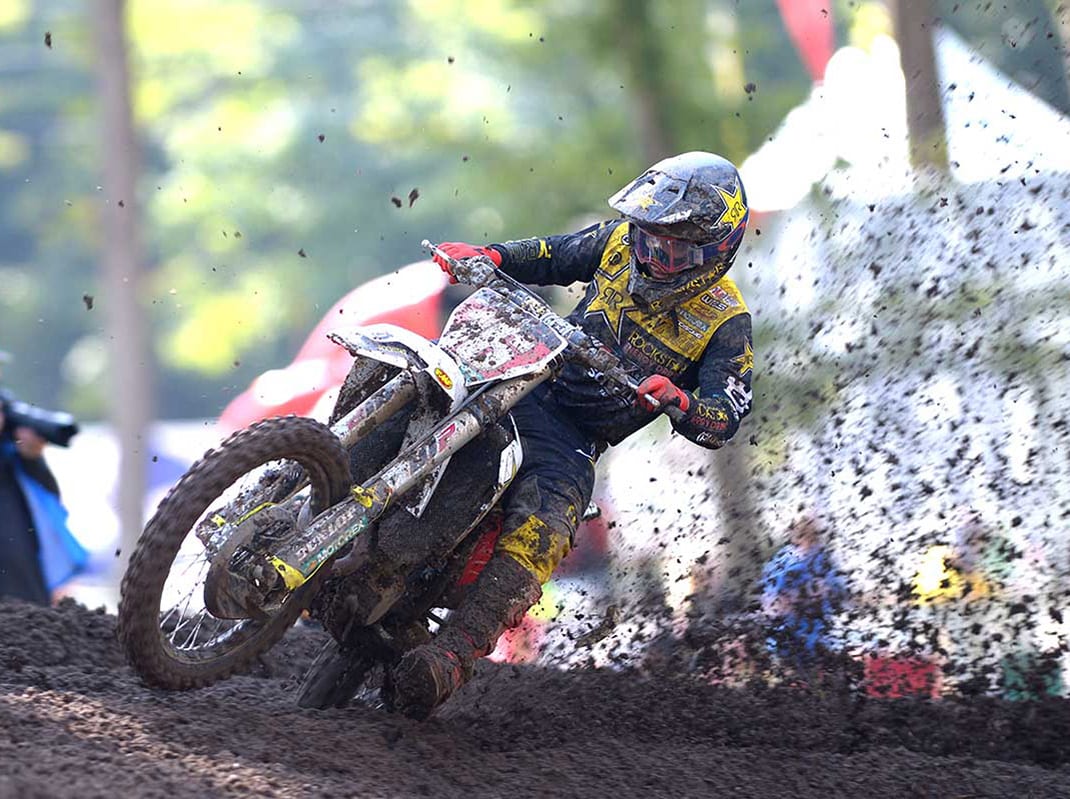We wondered what it is like riding for a smaller manufacturer compared to the larger Japanese teams.
“I rode for GEICO Honda and the resources from the factory were pretty endless,” Osborne explained. “But with Husky it’s even more so because Austria (Husqvarna headquarters) is so involved with everything we do. Being a smaller company, it makes it more nimble. If we needed a part redesigned or some sort of tweak, we could get it from the factory in a matter of days. With other companies, it seemed like it was more of a task to get what you need after that first batch of special stuff for the season.
“I think the KTM-Husky group is as dedicated as it comes to racing and getting results. For me, it’s a pure racing company and I think they pride themselves on that.”
While he considers himself better equipped as a rider for motocross than Supercross, Osborne believes he’s well rounded enough to be a contender for the Supercross crown.
“I think my consistency and overall ability of putting myself in the right situations will pay off in Supercross,” Osborne said. “It was nice to get that win at the end of last season and getting that off my back. Just feeling overall more relaxed about myself and my preparation, that’s going to be a huge benefit. I’m more naturally a motocross rider, but I’ve won two Supercross titles (in the 250 class) so that shows it’s not a weak spot for me.

“I kind of pride myself on being a good all-arounder. I always try new things to keep me sharp. That’s why I’ve done a lot of enduro racing and I’m down to try anything. I think you can always learn something from any situation when you go riding.”
Racing runs deep in the Osborne family. Zach Osborne’s dad, Mark Osborne, was a leading NHRA Pro Stock drag racer during the 1990s. Zach Osborne went to the races with his dad but fell in love with motocross at an early age.
Osborne sees the worlds of drag racing and motocross as being so different that he doesn’t feel having a father in that particular genre of motorsports necessarily gave him a lot of advantages when it came to motocross, “Maybe with the exception of how to deal with the pressures of racing and that kind of thing,” Osborne noted.
Osborne grew up in the mountains of Virginia, certainly not an area known as a hotbed for producing motocross champions. Osborne did have one rider, though, from his region to serve as inspiration.
“Mike Brown (2001 AMA 125cc motocross national champion) was from two towns over from me on the Tennessee side,” Osborne said. “He was a very successful rider and someone I looked up to my whole career. I think that was a big part of it as a kid, seeing with Mike that it was possible to come from a small town in the mountains and have success on a national level.”
There’s a theory in motorcycle racing that once a rider gets married and has a family that it becomes a lot tougher to maintain the intense focus needed to be at the top of your game. Osborne takes pride in breaking that myth.
“It’s my family that really motivates me to go out there and give my best,” he said. “Having a stable homestead to come home to and knowing that no matter what my kids are going to be happy and my wife is going to be happy, it gives larger meaning to do what I do. That’s a huge part of my success.”
Going through all he’s been through on the world championship level has made finally becoming an American champion that much sweeter for Osborne.
“I wouldn’t be the racer I am today if it hadn’t been for my travels to Europe and racing there,” Osborne concluded. “It played an integral part in what and who I am today. My racing identity was already in place, but who I was as a person and kind of finding my feet as an adult was all made there. I wouldn’t change my journey or what I’ve done in my career for anything because I’m right where I need to be now.”
